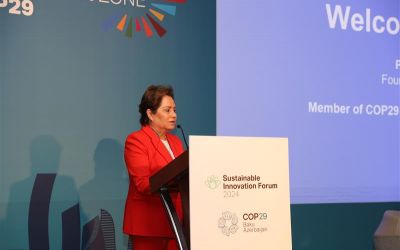Acting now on carbon emissions could save over 150 million lives
New research led by Duke University has found that tougher policies on fossil fuel emissions could prevent up to 153 million premature deaths in the immediate term.

New research led by Duke University has found that tougher policies on fossil fuel emissions could prevent up to 153 million premature deaths in the immediate term.
Their work concluded that taking action now, rather than later, to limit warming to 1.5 degrees under the Paris Agreement could have significant health benefits in major metropolitan areas around the world, especially in Asia and Africa.
The study ran computer simulations of future carbon emissions in the Earth’s atmosphere under three different scenarios. These ran the impacts of reductions made over the 21st century with no negative emissions; having higher carbon emissions in the near-term, but still limiting warming to 2 degrees, and finally an accelerated reduction in the near-term which limits warming to 1.5 degrees.
The researchers then worked out the health impacts to pollution exposure under each scenario, focussing on major cities. Leading cities to benefit under the early action scenario were the Indian cities of Kolkata and Dehli, estimated to save over 4 million lives each.
In addition, thirteen cities in Asia and Africa could avoid one million premature deaths, and 80 further urban centres could avoid 100,000 deaths.
40 percent of these lives saved could also happen within the next 40 years.
The study claims to be the first to project the number of lives saved by city, looking at 154 in total of the world’s largest urban areas.
Drew Shindell, a Professor of Earth Sciences at Duke, said: “The lowest-cost approach only looks at how much it will cost to transform the energy sector. It ignores the human cost of more than 150 million lost lives, or the fact that slashing emissions in the near term will reduce long-term climate risk and avoid the need to rely on future carbon dioxide removal”.
“That’s a very risky strategy, like buying something on credit and assuming you’ll someday have a big enough income to pay it all back”, he added.






